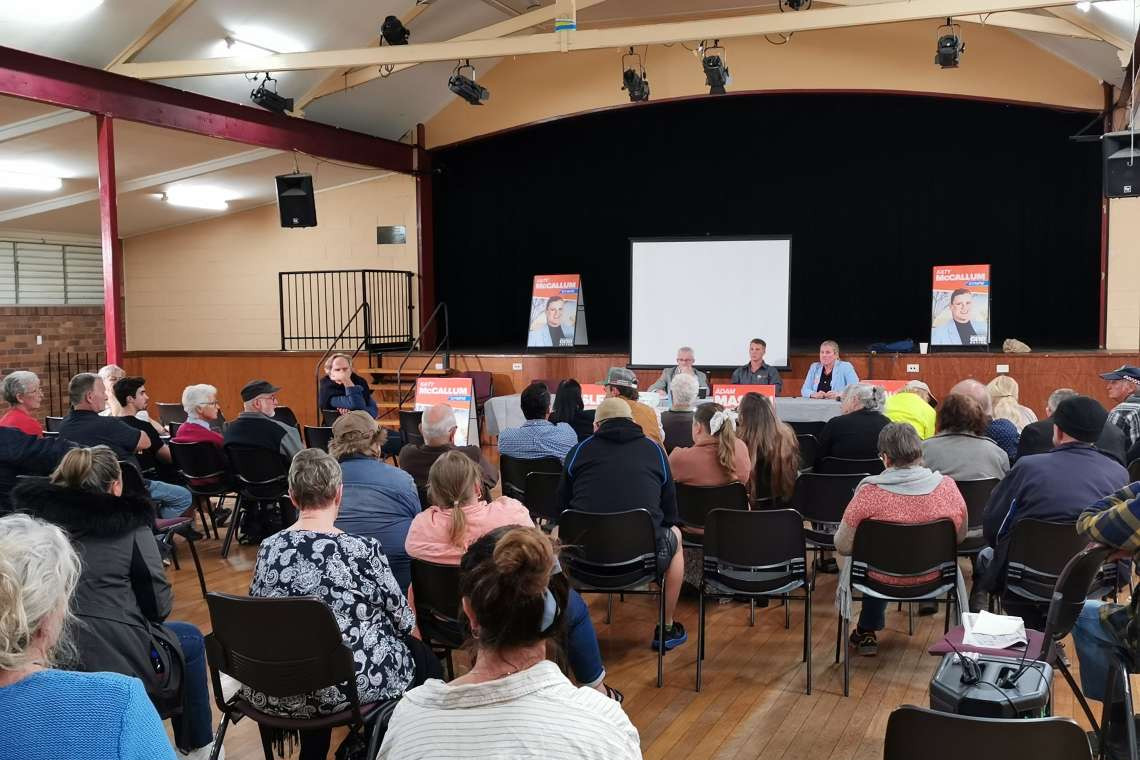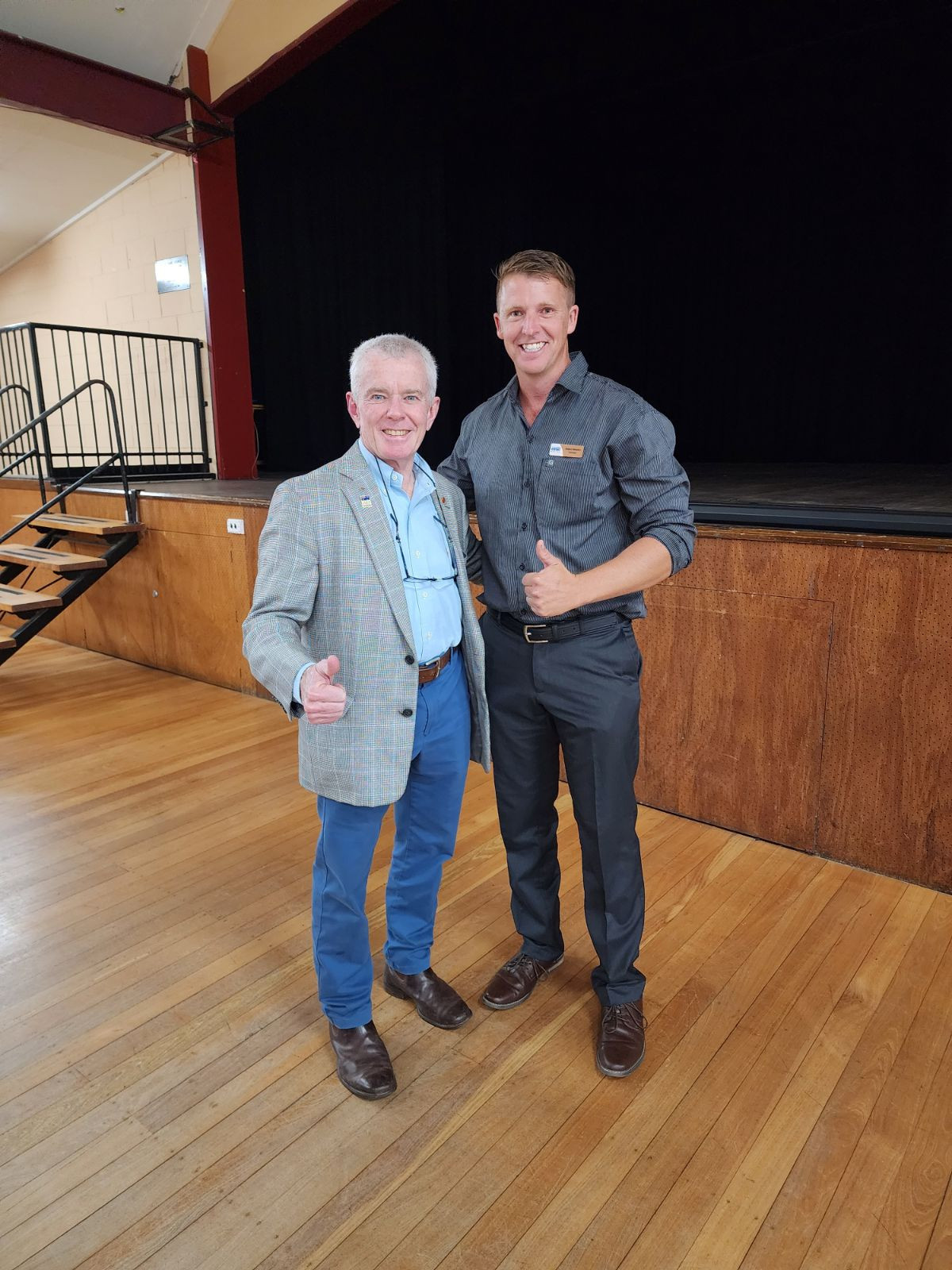News
1 August, 2024
Forum sparks debate
Over 60 people attended a weekend forum in Kilcoy to hear more about renewable energy, following a development application for a battery energy storage facility at Hazeldean.

The meeting, organised by residents opposing the project, was held at the Kilcoy Memorial Hall on July 26, with speakers including One Nations Senator Malcom Roberts, One Nation candidate for Nanango, Adam Maslen, and Kilkivan resident, activist and One Nation candidate for Gympie, Katy McCallum.
Mr Maslen and Ms McCallum delivered presentations with an open forum being held afterwards, with residents voicing their concerns and displeasure with the Enervest battery storage facility proposal.
Mr Maslen said the discussions emphasised that political change is essential to address these issues.
“The event was a valuable opportunity for learning and community engagement, reinforcing the need for collective action and political involvement to protect local interests,” he said.
“I’m committed to addressing the infrastructure needs of our regions instead of destructive taxpayer-funded renewables, ensuring that roads are well-maintained, family recreational spaces are developed, schools receive necessary upgrades and hospitals are adequately equipped to meet the community’s healthcare needs.
“Let’s focus on these essential elements to create a thriving and connected community, rather than divisive policy.”
Given how much renewable energy is being discussed, particularly battery energy storage systems (BESS) in this case, The Sentinel reached out to the Queensland Department of Energy and Climate (QDEC) to get some additional information on how BESS’ work and how companies make a profit off them, to prevent the spread of misinformation.
According to the QDEC, a BESS works by storing electrical energy during low usage times, and releasing it back into the system when it’s needed.
BESS owners earn profits by charging their system with electricity bought at low prices - such as during the day when solar output is highest - and then selling when demand goes up and prices are higher.
Despite concerns of BESS owners raising residential bills and “exploiting” customers due to selling energy when prices are higher, the QDEC said a BESS will not affect residential bills, as the BESS owner is competing against a large number of other suppliers.
“For regional Queensland, tariff s are regulated and set by the Queensland Competition Authority.
In South-East Queensland, customers can choose from the retail plans of more than 20 electricity retailers” the spokesperson said.
There is also a bill cap set by the Australian Energy Regulator (AER) for specific usage levels in each electricity distribution zone and small customer type.
This limits the price energy retailers can charge on standing offers (default plans) at the specified usage level.
This bill cap is known as the default market offer (DMO) and applies to standing offer contracts.
In South-East Queensland, about 10% of residential customers and 20% of small business customers are on standing offers.
The DMO is used as a reference point to compare market offers but does not directly apply to them.
The AER monitors the wholesale electricity market and works to ensure that participants are operating fairly and that consumers are protected.
Lastly, the QDEC said a BESS can reduce energy bills in the long term, as it can reduce the need for network upgrades by helping even out big swings in supply and demand.
“Large battery systems can indirectly help keep consumer bills down by allowing a greater output of rooftop solar and storing excess generation, which might otherwise be lost,” they said.
“This means rooftop PV systems owners can earn more than would be possible without the BESS.”
For more info on the AER and learn about electricity price safety, visit https://www.aer.gov.au/about/aer/our-role


